The only on-demand support, designed for MHFAs & Champions.
Discover moreProud to be supporting 5,000+ wellbeing advocates in the workplace






Supporting and protecting MHFAs & Champions in the workplace.



MHFA’s weren't given the support to succeed & we’re putting it right.
A strong peer-to-peer network prevents individuals from reaching crisis, offering proactive support as soon as possible. Sadly, most MHFA and Champions networks were trained and forgotten, putting the organisation and network at risk. That’s why we’ve created the first-ever on-demand support specifically designed for MHFAs & Champions.
Keep scrolling to find out how it works
One place, your wellbeing network supported.

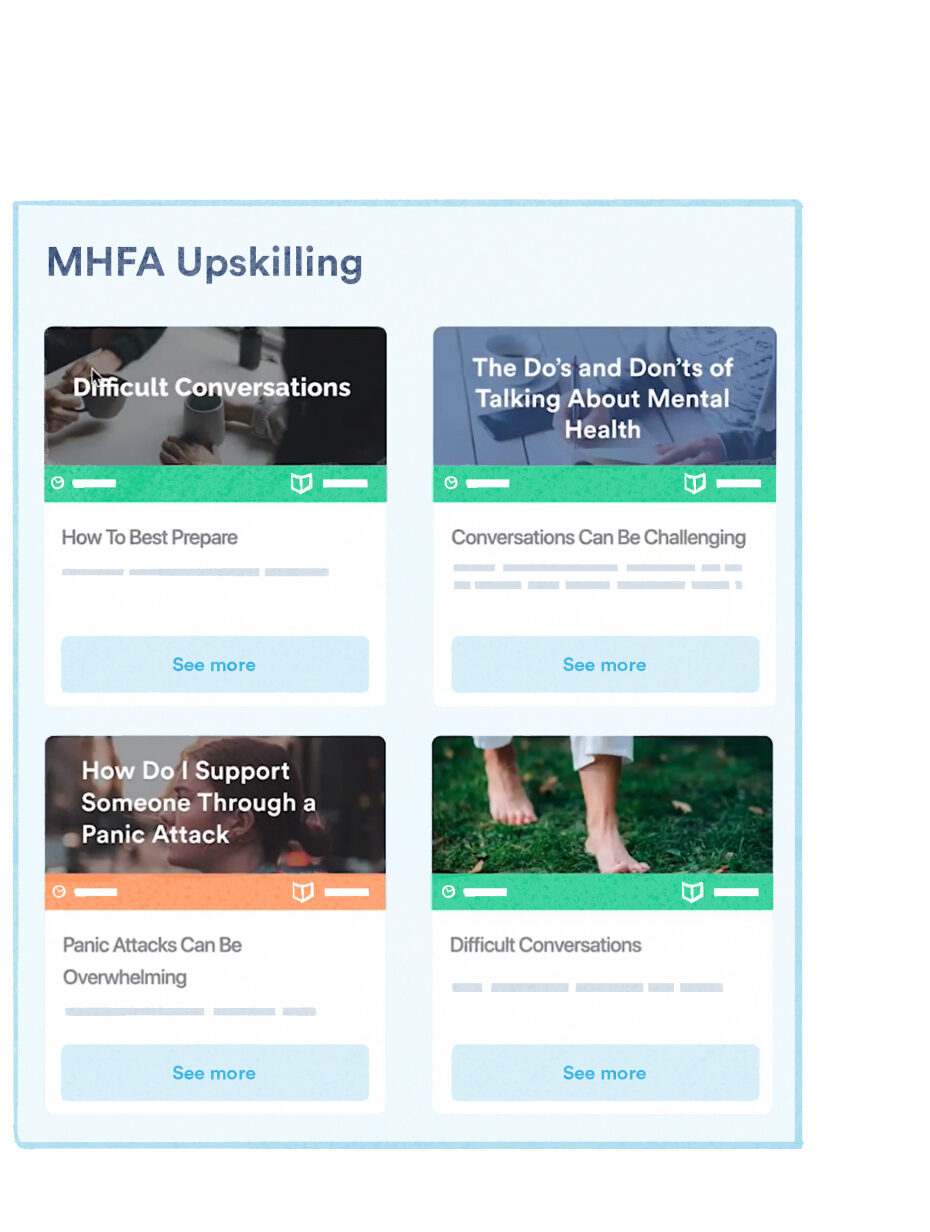
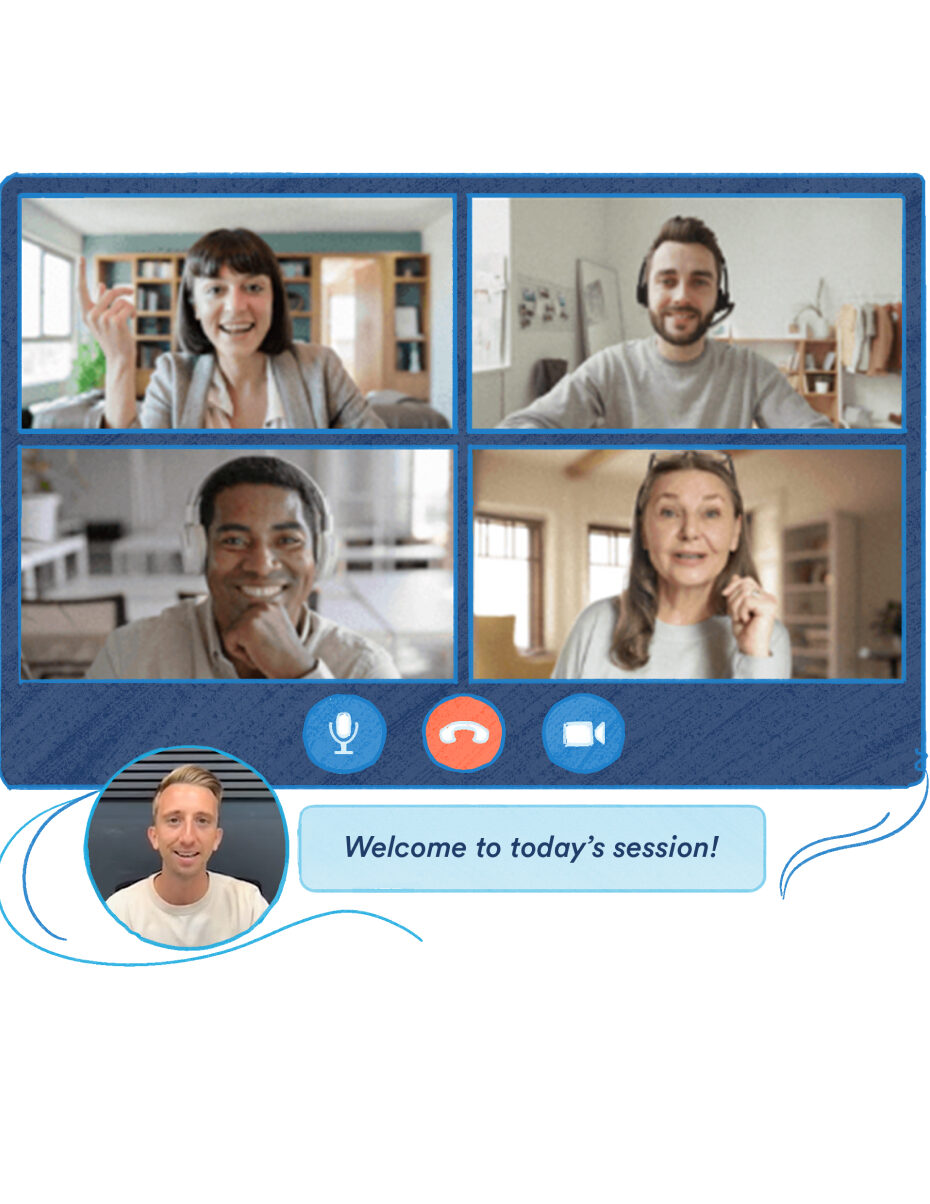
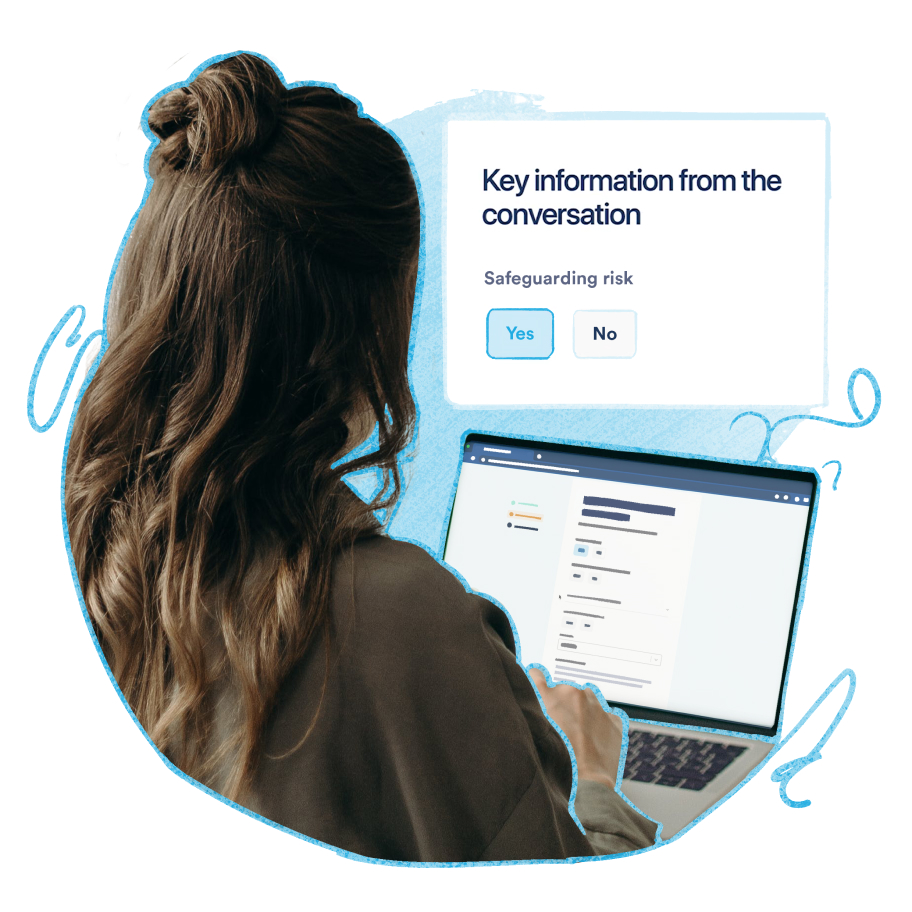
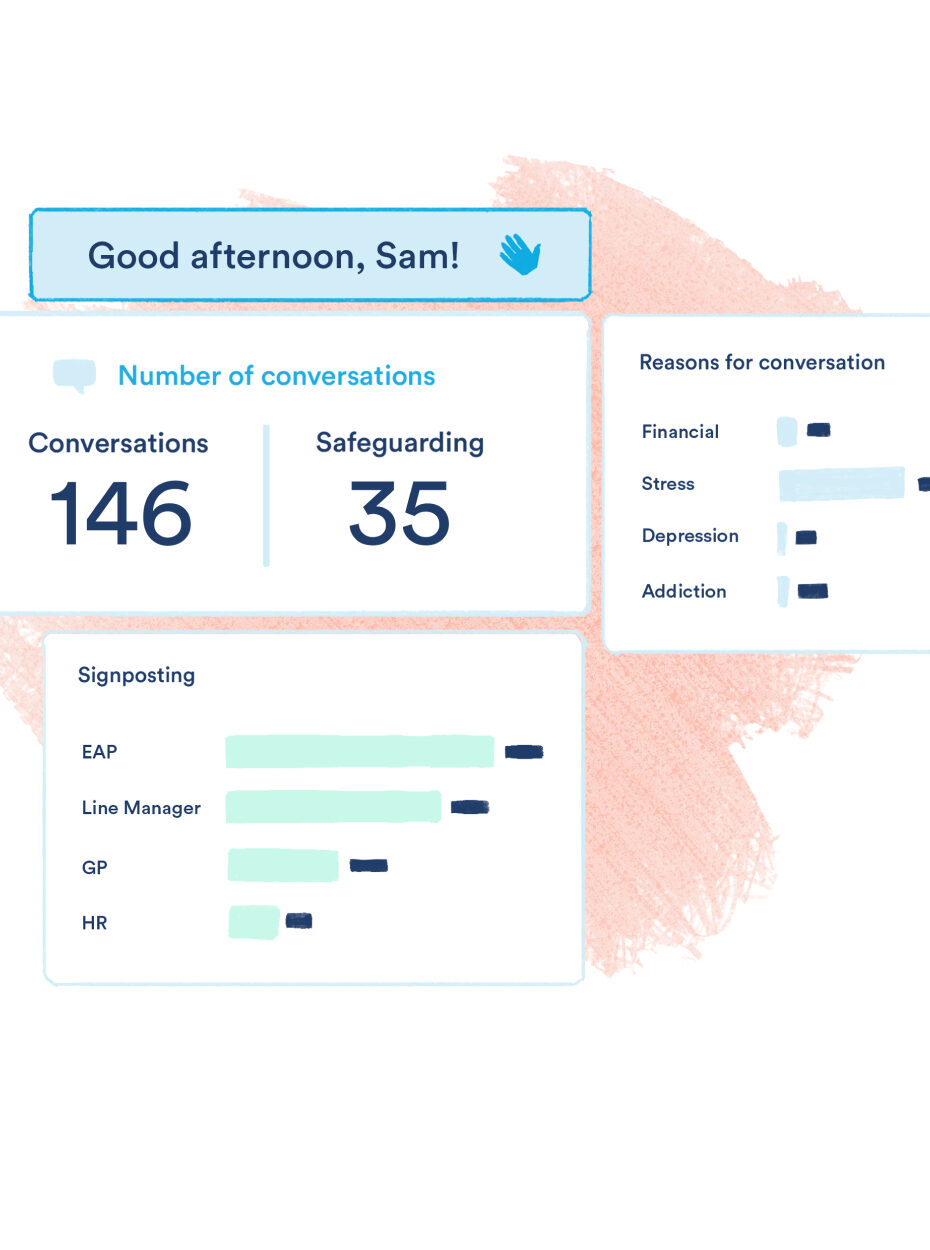
Our 9-5 support line is available to your MHFAs and Champions Monday to Friday. Run by a clinical team, you’ll have peace of mind that your network has someone to reach out to when they’re struggling or need guidance with difficult conversations.
Within our platform, your MHFAs can access our Skills Centre for on-demand training and wellbeing resources. Not only do the resources upskill individuals, but they can also find content dedicated to supporting their own wellbeing, such as mindfulness exercises, breathwork, and more.
We run live training events every month to engage, develop and ensure skills remain up-to-date. They’ll join a community of other MHFA’s & Champions and have the opportunity to ask questions to our presenters as well as learn from industry experts.
Unlike most tools, we ensure data is controlled in one place so confidentiality and privacy is never at risk. Plus, our approach aligns with a number of measures set out in ISO45003 and ensures safeguarding risks are flagged.
Within our platform, MHFAs anonymously log conversations with a number of key data points. This allows you to not only track how many conversations are happening across the network but also the location they’re happening in, where individuals are being signposted and much more.
Get to know us a little better!
0%
of our partners recommend us to other organisations, explore our case studies to learn why.
0%
of workplaces recognised an improvement in employee wellbeing since partnering with us.
0%
of Mental Health First Aiders (MHFAs) expressed a need for additional support in their roles.
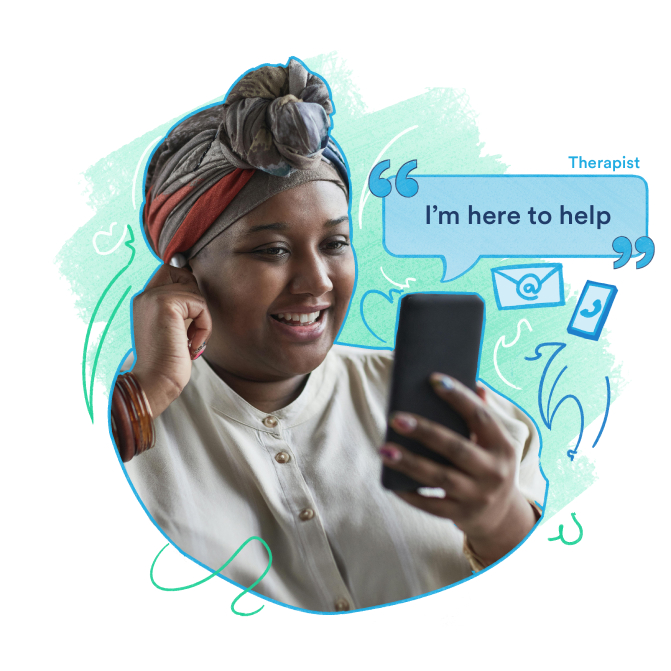
Higher engagement and bigger impact
Traditional wellbeing provisions such as EAPs experience low engagement and operate in a reactive way. In contrast, our platform typically achieves an 85% engagement rate.
Learn more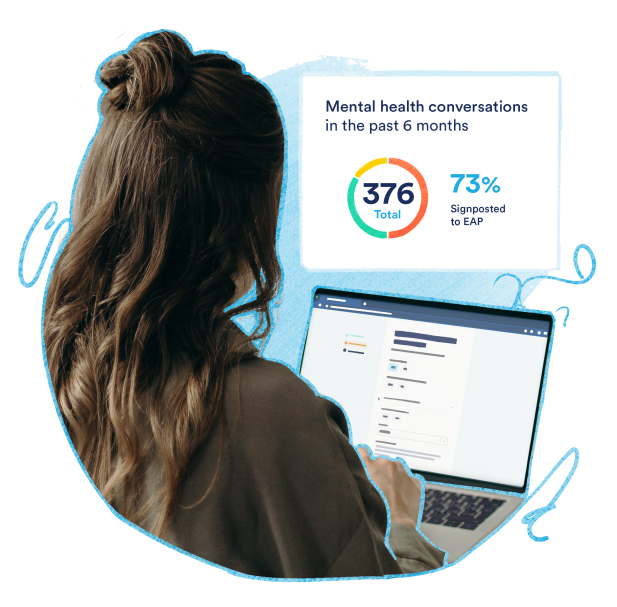
Insights to feed your wellbeing strategy
Through our dashboard, uncover the mental health and wellbeing challenges employees are facing along with location-specific data.
Learn moreWith our support, BWB have achieved a 54% reduction in sickness absence related to stress and wellbeing


Yes, all our partners love our support (& us) this much
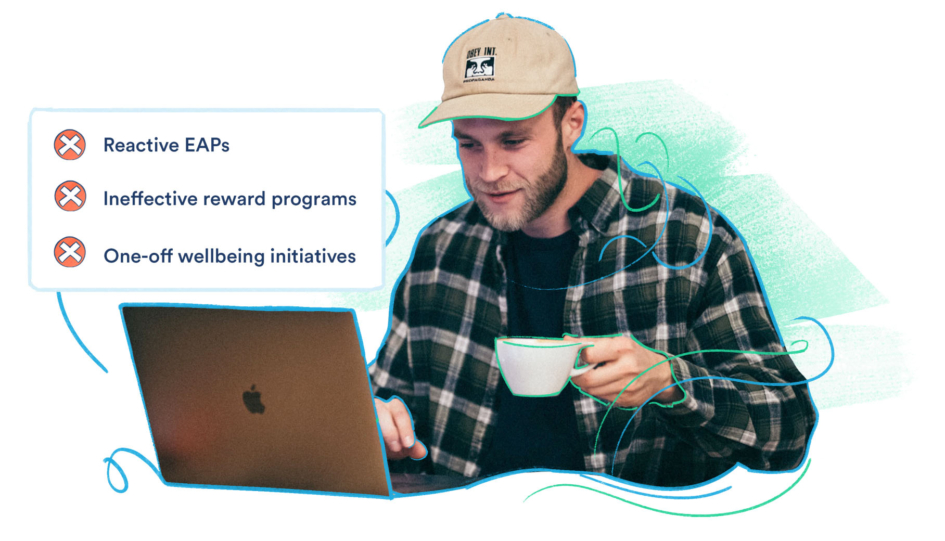
EAPs weren’t designed to support MHFAs
EAPs do not provide adequate support for your wellbeing network. They need a support system designed for them along with key resources to ensure they’re operating in a safe manner and fully supported in their role.
Learn more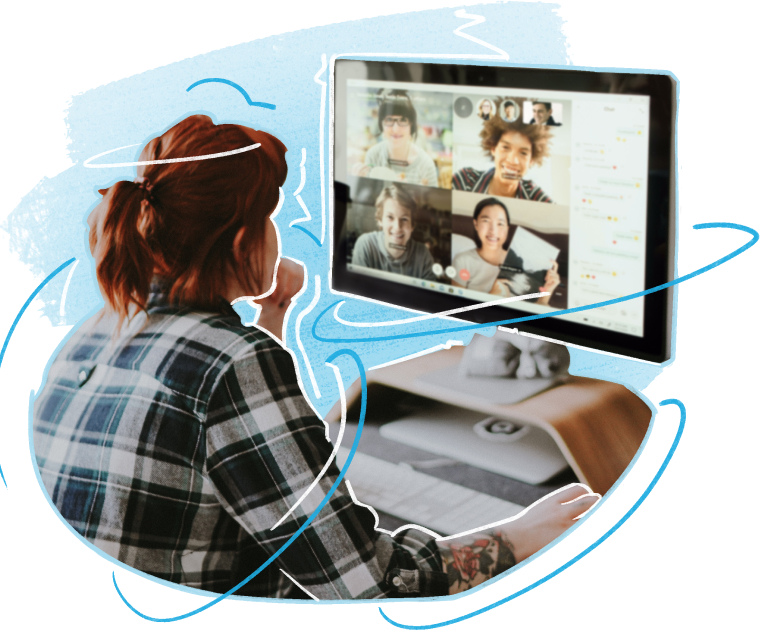
Our customers are award winners
Our approach is turning organisations into renowned award winners. Portakabin won the Mental Health First Aid (MHFA) award at InsideOut, while another client became the first organisation ever to be recognised with a world-class safety, wellbeing, and sustainability ‘treble’ from the British Safety Council.
Learn moreWhat our customers are saying
Join our community
Looking to boost workplace wellbeing and support employees proactively? You’re in good hands!
You can dive into some of our events, communities and wellbeing resources below 🌟
We’re proud to work with the world’s leading brands
A few frequently asked questions
Explore some of the most common questions below, you can also take a look at our full FAQ linked below!
We’ve helped organisations drive impact in many different ways. By improving the effectiveness of MHFA and Champion networks, we’ve helped reduce sickness absence related to stress and wellbeing and improve eNPS scores across organisations. Not only this, but many of our clients have become award-winning organisations, recognised for the support they provide to colleagues, winning awards from InsideOut and the British Safety Council. This impact cascades up, supporting organisations in retaining talent, driving productivity and brand reputation. To learn more, you can view our customer stories here and our full FAQ just here.
When considering the risks associated with a poorly supported wellbeing network, one significant concern for organisations is the potential failure to address foreseeable issues. This means that if an organisation is aware that MHFAs are struggling and the role is impacting their mental health, failing to establish a support system around them could be viewed as negligence in court. Secondly, if a MHFA provides inadequate advice to an individual in severe distress, the organisation may face significant implications. For instance, if a MHFA’s advice is seen as a key factor in an individual taking their own life, the employer could be held responsible.
Public cases regarding these risks are often scarce due to their sensitive nature and the presence of non-disclosure agreements. Nevertheless, experts in Health & Safety and Human Resources have encountered numerous situations where improved training, ongoing support and the implementation of proper systems within the network would have been the solution.
We can, but we don’t recommend it. Our platform addresses two of the most common core challenges organisations face: engagement and tracking impact. However, we understand that, from a data perspective, the platform may not be an option for every organisation. While you can provide support separately, we often achieve the best impact when it’s implemented as a whole.
Absolutely! We can offer consultation and support you with a phased approach to get your network of MHFAs and Champions up and running. We can also provide resources on how to identify and train the right people, in addition to delivering the training for you. Wherever you are on your journey, we’re here to assist.
We’ve kept our pricing simple. Instead of variable pricing with licensing, we base the cost on the size of your MHFA network. This means straightforward pricing that you can easily budget for the year. We also offer flexibility in payment frequency; you can choose to pay the fee annually, quarterly, or monthly. To get a quote for your network today, please reach out to us.
Get in touch
89% of workplaces we’ve supported have recognised a key improvement in employee wellbeing. Speak to us today to learn how we can help you! 🙌
"*" indicates required fields









